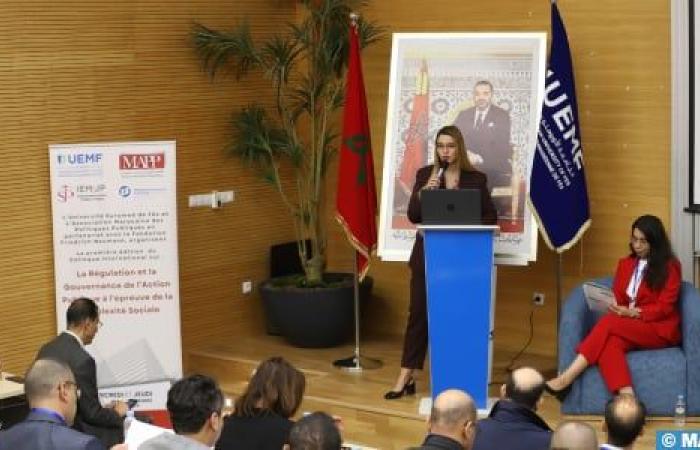Wednesday, November 20, 2024 at 7:35 p.m.
Fez – Researchers pleaded, Wednesday in Fez, for a more inclusive approach to public governance during an international conference at the Euro-Mediterranean University of Fez (UEMF).
In a context marked by growing social, economic and environmental challenges, they underlined the importance of bringing together all the stakeholders concerned to develop effective and sustainable public policies.
Speaking on the occasion of this meeting held under the theme “the regulation and governance of public action under the test of social complexity”, the director of the Euromed Institute of Legal and Political Sciences, Abderrahmane Haddad , highlighted the double dimension of this problem, first a scientific dimension, inherited from a long tradition of reflection on the role of the public actor since Antiquity, then a practical dimension, faced with the contemporary challenges facing states are facing, notably Morocco.
Mr. Haddad stressed the need for an inclusive approach to public governance, involving not only the State, but also local authorities, public establishments, civil society and the private sector. This broader vision of governance places each actor before their responsibilities, from individual citizens to public institutions, he said.
In a statement to MAP, the president of the Moroccan Association of Public Policies, Jamal Hattabi, highlighted the importance of this international conference in the context of current reflections on public policies.
According to Mr. Hattabi, this activity is part of a broader program that the Association has been drawing up for some time, aiming to encourage in-depth reflection on public policies and their complexity through the different actors involved.
He noted that the efficiency of public action depends not only on the effectiveness of individual actors, but also on the resolution of problems generated by differences between these actors.
“Convergence and coordination between the different stakeholders are essential for public policies to achieve their objectives and achieve sustainable and equitable development,” he maintained.
In a similar statement, the director of the Friedrich Naumann-Morocco Foundation, Sebastian Vagt, raised the pragmatic dimension of the conference by evoking the concrete challenges that Morocco is currently facing.
He notably cited migration, the energy transition, the reconstruction of Al Haouz and water stress as examples of issues requiring in-depth analysis of public policies.
This event, which takes place on November 20 and 21, 2024, is the result of a collaboration between the Moroccan Association of Public Policies, the UEMF, the EuroMed Institute of Legal and Political Sciences, in partnership with the Friedrich Naumann Stiftung- Morocco.
According to the organizers, this conference promises to be a crucial platform for exchange and reflection for the future of public governance in Morocco. It aims to produce concrete recommendations for the attention of political decision-makers, while contributing to the enrichment of the academic debate on these fundamental questions.






